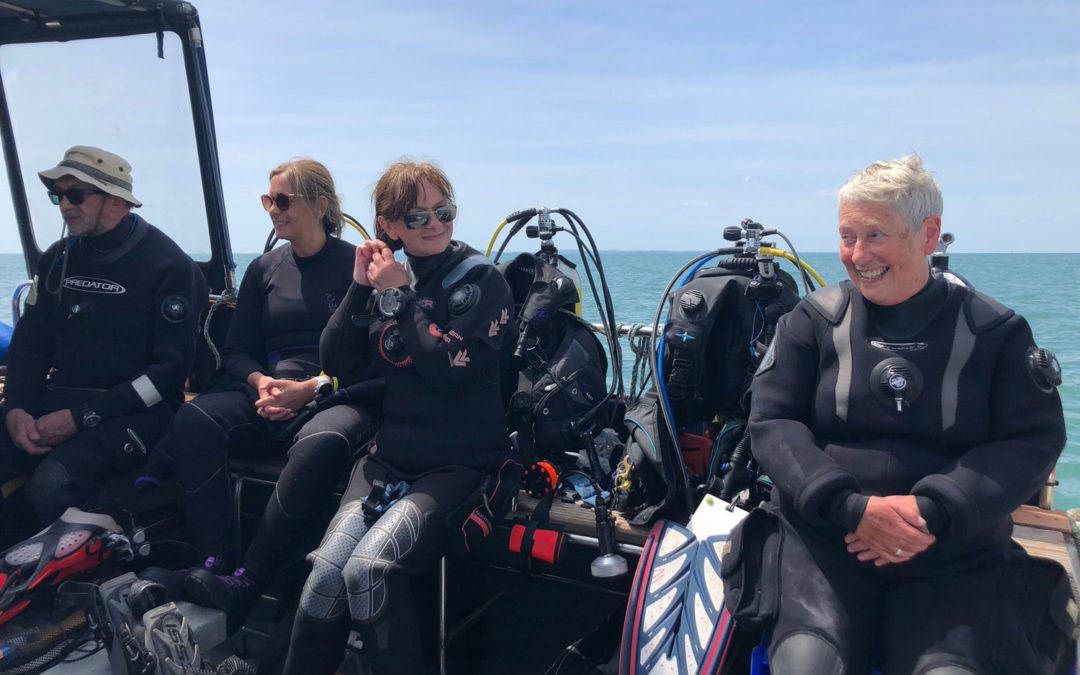The Protected Wreck Association, in partnership with MSDS Marine, has been awarded a grant of nearly £29,000 from Historic England, to undertake a project to provide support to England’s protected wreck site volunteers.
This new project will aid the development of the Protected Wreck Association’s systems and services in order to strengthen the ability of the Association, and its members, to support their work on England’s Protected Wreck Sites.
The first step of the project was to create a new website resource which is being launched by the Protected Wreck Association today. The new user friendly, mobile responsive site is a hub to enable members to share knowledge and best practice. A members only area allows access to resources and equipment shared between members.
Volunteers are essential to the system that helps manage wreck sites in England’s territorial waters. The volunteer teams have consistently shown their commitment, enthusiasm and support for these wrecks of international or national importance. The volunteers work tirelessly on the protected wreck sites, usually funding their investigations themselves, to help bring these wrecks alive for the public on dry land for everybody’s benefit. They are a unique breed of diver: focused, enthusiastic, committed and dedicated. Historic England have recognised the enormous contribution they make to the management of the wreck sites by formally recognising them as affiliated volunteers and the Protected Wreck Association is the body that represents them.
Prof. Mike Williams, Chair of the Protected Wreck Association, said, ‘We are delighted and grateful that Historic England have funded this project. It will enable us to undertake valuable work to support our members, who are dedicated volunteers protecting our maritime heritage’.
This national-level project will champion, support and enable the Protected Wreck Association and its members, to reduce the number of marine heritage assets that are at risk and aid Historic England in the management of the sites designated under the Protection of Wrecks Act 1973 or scheduled underwater under the Ancient Monuments & Archaeological Areas Act 1979.
A key aim of this project is to work with Protected Wreck stakeholders to create site security protocols and a template and guidance notes for their future creation. The site security protocol created by the South West Maritime Archaeology Group for the Salcombe Cannon and Moor Sand sites has long been recognised as an example of best practice and an exceptional contribution made to the management of two protected wreck sites. It has helped ensure these sites remained off the Heritage at Risk register in recent years. It is annually updated and provides a clear protocol for all stakeholders to follow to prevent heritage crime and to react should something occur. This model will be adapted into a template and a guidance document created. The project team will then liaise with individual site teams and work with them to produce documents for the sites on which they are affiliated.
The final element of the project is to undertake an audit of both current training needs and training provision in the sector. This will be followed by a discussion session for all training providers to attend to discuss a sectorial approach to training. It is hoped the subsequent report on training will lead to further funding to enable the delivery of training in future.
Hefin Meara, Marine Archaeologist at Historic England said, ‘We are pleased to be able to support this project and recognise the enormous contribution that volunteers have made to the marine historic environment around England since the popularity of SCUBA diving began’.

